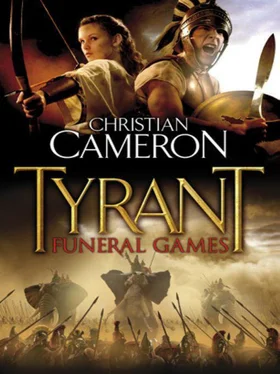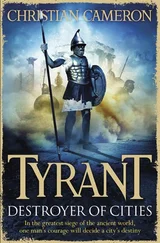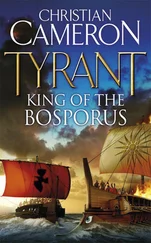Christian Cameron - Funeral Games
Здесь есть возможность читать онлайн «Christian Cameron - Funeral Games» весь текст электронной книги совершенно бесплатно (целиком полную версию без сокращений). В некоторых случаях можно слушать аудио, скачать через торрент в формате fb2 и присутствует краткое содержание. Жанр: Исторические приключения, на английском языке. Описание произведения, (предисловие) а так же отзывы посетителей доступны на портале библиотеки ЛибКат.
- Название:Funeral Games
- Автор:
- Жанр:
- Год:неизвестен
- ISBN:нет данных
- Рейтинг книги:5 / 5. Голосов: 1
-
Избранное:Добавить в избранное
- Отзывы:
-
Ваша оценка:
- 100
- 1
- 2
- 3
- 4
- 5
Funeral Games: краткое содержание, описание и аннотация
Предлагаем к чтению аннотацию, описание, краткое содержание или предисловие (зависит от того, что написал сам автор книги «Funeral Games»). Если вы не нашли необходимую информацию о книге — напишите в комментариях, мы постараемся отыскать её.
Funeral Games — читать онлайн бесплатно полную книгу (весь текст) целиком
Ниже представлен текст книги, разбитый по страницам. Система сохранения места последней прочитанной страницы, позволяет с удобством читать онлайн бесплатно книгу «Funeral Games», без необходимости каждый раз заново искать на чём Вы остановились. Поставьте закладку, и сможете в любой момент перейти на страницу, на которой закончили чтение.
Интервал:
Закладка:
None of the arrows hit a target. Now he was down low on Thalassa’s neck and Melitta was with him, the two horses kicking up dust as they sped right at the Sauromatae, and again he could hear nothing but Thalassa’s hoof beats. This was a sport the children knew, although they had never played it for real. They left their tutor kneeling in the road, looking like a fool or a mime in a play.
The Sauromatae were not good archers. They had slim bows of wood and not the recurved bows backed in sinew and horn that the Sakje used, and they relied too much on their spears and armour up close, or so Satyrus’s mother said. All her comments floated through his brain as Thalassa’s hooves pounded along the grass at the verge of the road, a slow rhythm that marked out what might be the last moments of his life.
Melitta, the better archer of the twins, loosed her first arrow and turned away, guiding Bion with her knees as the big gelding curved away to the right.
Satyrus held his course until he saw the Sauromatae raise their bows, and then he loosed – a clumsy shot, wrecked by speed and fear, so that the arrow went high and was lost. But he was close enough that his shot had the same effect on some of the Sauromatae.
Not all, though. Thalassa lost the flow of her gallop as he turned her, and the rhythm of her run changed. When he looked back, she had an arrow in her rump.
He turned her back, head on to their enemies and now, suddenly, close. He had an arrow on the string, the horn nock sliding home between his fingers, fear a few yards behind him but catching up – they were big men, and the closest one had a ferocious grin. He had dropped his bow in favour of a long spear.
‘Artemis!’ the boy shouted, more a shriek of fear than a war cry, and loosed. He couldn’t breathe, almost couldn’t keep his knees tight on Thalassa’s broad back. He was so afraid.
His arrow knew no fear. The man with the grin took the arrow in the middle of his torso, right through his rawhide armour. He went down over his horse’s rump, and Satyrus could breathe. He leaned hard to the left and Thalassa was still there for him, skimming the ground in great strides and yet managing to turn away from the barbarians. The man he’d hit screamed soundlessly, his mouth round and red and his rotting teeth black, and all Satyrus could hear were hoof beats.
Satyrus reached across his body for an arrow, half drew one and dropped it. He felt for another. One more, he thought. I’ll shoot one more and that will be enough. He got the fletching of another arrow in his fingers and pulled the arrow clear. He leaned back, got the arrow on the bow and the nock on the string and put his charger’s head back at the enemy.
Another one was down, and a third man was clutching an arrow in his bicep and screaming – rage and fear and pain all together as a pair of children flayed his raiding party. But the flow of the fight had carried the Sauromatae up the road, almost to where Coenus lay in the grass and Philokles knelt. The Sauromatae ignored them.
Thalassa missed another stride and almost went down. She slowed sharply.
I’m dead, Satyrus thought. He rose on his knees and shot the way Ataelus the Sakje taught, from the top of his mount’s rhythm. His arrow went deep into the gut of a young Sauromatae. He drew another arrow as they turned towards him. He had started on a better horse, but she was tired and old and had carried a heavy burden for several stades, and despite her heart she couldn’t keep the pace for ever.
Lita shot again. They were ignoring her, and she shot the horse of a man near Coenus so that the man was thrown right over his horse’s head. He rolled once in the road and tried to get up.
Satyrus shot at a man in red with a golden helmet, and the arrow glanced off the man’s scale cuirass of bronze.
Philokles rose from his knees. He stepped up to the man who had just been thrown by his wounded horse. Philokles killed him with a vicious kick to the neck. The man’s spine snapped and the sound carried across the vale. Then Philokles bent and picked up the man’s long spear.
The action on the road and the snap of their comrade’s spine drew attention away from Satyrus. The second of hesitation saved his life, and Thalassa powered through a gap in the circle closing around him and he shot one man from so close that he could see every detail of the shock of pain that hit him, could see the spray of sweat from the man’s hair as his head whipped around and the burgeoning fountain of blood emerging from the man’s throat where the arrow had gone in.
Tyche. The best shot of his life. He turned Thalassa again, ready for her heart to give out in the next stride, but while she was moving he was alive. He made for the road, because the flow of the battle had left it the emptiest part of the battlefield.
Melitta shot again, and missed, but he watched them dart away from the point of her aim, gaining him another few strides.
Thalassa crossed the road close to Philokles. Dust and sweat streaked the Spartan’s face like an actor’s mask of tragedy. Satyrus twisted in his seat and shot straight back and missed the man behind him, even though the range was just a few horse-lengths. But in his peripheral vision he saw the man duck, and then saw Philokles rip him from his horse with a spear point through the face, gaffing his jaw the way Maeotae farmers took the big salmon.
Philokles’ kill broke the Sauromatae. It was not just that they were taking heavy casualties – it was the manner in which Philokles’ victim died, his head almost ripped from his body. The other Sauromatae flinched away, abandoning their wounded, and galloped off down the road.
In heartbeats, the drone of the spring insects and the calls of a raven were the only sounds to be heard over the panting of men and beasts and the murmuring of a wounded Sauromatae boy with an arrow in his guts, calling for his mother. Satyrus thought that it would have been nice not to understand his thick Sakje. It might have been nice to think that the boy, just a few summers older than Lita, might live, but no one lived with an arrow in the guts.
I did that, he thought.
‘We have to get across the river,’ Philokles said, as if nothing had happened.
‘Please motherohpleaseohhhhh,’ said the boy in the tall grass.
It wasn’t a boy. Satyrus was close enough to know that his target was a maiden archer, one of their young women. ‘Please! Ohmotherohhh-’ she said.
Satyrus looked away, afraid of what the girl in the grass meant about life and death, afraid of himself. Thalassa trembled between his thighs. He raised his eyes and met Philokles’ look.
‘Please! ’ the girl begged.
‘War is glorious,’ Philokles said. ‘Do you want me to kill her? Another death will hardly add to the stain on my soul.’ His voice was without tone – the voice of a god, or a madman.
Satyrus looked at his sister. She was retching in the grass, her head down. Bion was wrinkling his lips in equine distaste.
‘They’re forming up for another try,’ Theron observed. He was looting the downed Sauromatae. He had a sword, a back-curved Greek kopis.
Satyrus drew an arrow from his quiver and rode over to the girl. She was rocking back and forth, arms crossed over the blood. Her face was white and her hair was full of sweat and dust. She had some gold plaques on her clothes. Somebody’s daughter. This close, she didn’t look any older than he was. Take her quickly, huntress, he thought.
He was curiously far away, watching himself prepare to kill a helpless girl his own age, and his hands didn’t tremble much. The range was close.
He shot her.
He meant the arrow to go into her brain, but the shaking of his hands or the flexing of the shaft put it in her mouth. She shuddered, and made a choking sound, and then vomited blood like the fish.
Читать дальшеИнтервал:
Закладка:
Похожие книги на «Funeral Games»
Представляем Вашему вниманию похожие книги на «Funeral Games» списком для выбора. Мы отобрали схожую по названию и смыслу литературу в надежде предоставить читателям больше вариантов отыскать новые, интересные, ещё непрочитанные произведения.
Обсуждение, отзывы о книге «Funeral Games» и просто собственные мнения читателей. Оставьте ваши комментарии, напишите, что Вы думаете о произведении, его смысле или главных героях. Укажите что конкретно понравилось, а что нет, и почему Вы так считаете.












